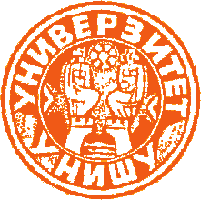The Neighbourhood of the Religious Communities in the Balkans
The Neighbourhood of the Religious Communities in the Balkans
Author(s): Georgi FotevSubject(s): Social Sciences
Published by: Универзитет у Нишу
Summary/Abstract: Religions are of a key importance for the meaningful construction and constituiting of the societies which they are embedded in. In the traditional societies this is obvious in a most direct way. In the secularized (modern) societies this function of the religions is most often too mediate and in many cases it is even expressed through derivatives. For instance, a large portion of people in the national societies and ethnic groups in the Balkans nowadays are not religious in the meaning of believers but as a rule they determine themselves as Orthodox Christians, Moslems, Catholic, etc. on the basis of their belonging to the respective traditional religion. For historical and geopolitical reasons there are neighbourhoods of various religious communities in the Balkans. From a typological point of view the study of the neighbourhood and its classification embrace a considerable variety of this type of relations. The religious belonging is mirrored in all the aspects of the polydimensional phenomenon of neighbourhood. The negative experience piled up throughout the historical developments in the Balkans brings forward the acute problem of "Kolakovski" which can be projected in respect to each and everyone of the traditional religions as well as to the newly born religious movements. The report focuses on the problems which arise along the path from the attitude towards "the other" in the meaning of "the hostile", "the antagonistic other" to the constituting of good neighbourliness.
Journal: FACTA UNIVERSITATIS - Philosophy, Sociology, Psychology and History
- Issue Year: 1999
- Issue No: 06 special
- Page Range: 101-111
- Page Count: 11
- Language: English

